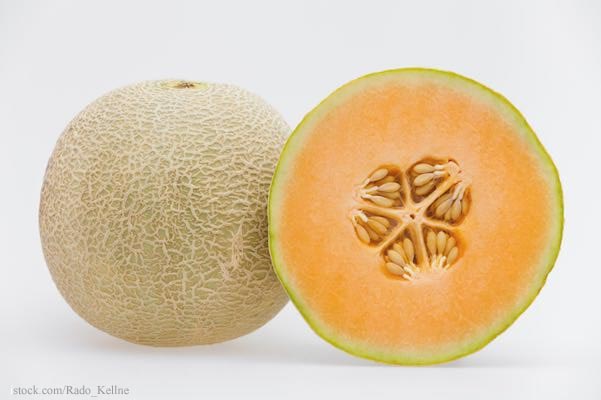After the huge and deadly Listeria monocytogenes outbreak linked to Jensen Farms cantaloupes in 2011, scientists and researchers have been trying to find ways to make this product safer. The heavily webbed surface of melons is perfect for bacteria to hide and thrive.

In that outbreak linked to melons, 147 people in 28 states were sickened, including seven pregnant women. One woman suffered a miscarriage, and three infants were born with listeriosis.
In total, 33 deaths from outbreak-associated listeriosis in this outbreak were reported to the CDC. The Colorado Department of Public Health and Environment isolated Listeria monocytogenes bacteria from cantaloupe samples collected from grocery stores and from ill persons’ homes. And the FDA isolated Listeria monocytogenes outbreak subtypes from equipment and cantaloupe samples from the Jensen Farms’ packing facility in Granada, California.
The USDA’s AgResearch magazine published an article about using a steam cleaner to make cantaloupes and other produce safer. This equipment is the same kind that removes wallpaper and cleans outdoor grills and other household surfaces. The study showed that this method is better at removing pathogens such as Salmonella, E. coli, and Listeria monocytogenes from produce more effectively than washes and chlorine treatments.
About 1.2 million Americans, out of the total of 48 million Americans who contract food poisoning every year, are sickened by contaminated produce. Those illnesses lead to 7,100 hospitalizations and 134 deaths every year, and generate $1.4 billion in illness-related costs.
Dike Ukuku and his colleagues at the ARS Food Safety and Intervention Technologies Unit inoculated cantaloupe with E. coli, Salmonella, and Listeria, then dried them and refrigerated them for 7 days. A commercially available power steamer was used to steam-clean the cantaloupes for 3 minutes. The temperature of the steamer was hot enough to kill pathogens, at 154°, but was not hot enough to damage the fruit.
Some cantaloupes were immediately cut, and other were stored for another 7 days at 41°F and then cut. The results showed that the steam treatment effectively killed most pathogens. They achieved a 99.9% reduction of pathogens on the melon surface. Pathogens were not detectable in the cut up pieces. And the surface pathogen levels were 100 times lower than those found on cantaloupe sanitized with chlorine.
The cut pieces had no undue softening, discoloration, or unwanted odors, whether they were immediately cut or stored and then cut. The scientists refrigerated treated melons for 29 days to check for abnormal ripening, decay, and defects but found none.
The researchers hope that this technique could be used to sanitize produce commercially for no significant cost additions. The fruit could be steamed when they are put into washers or as they are on conveyor belts during processing.




